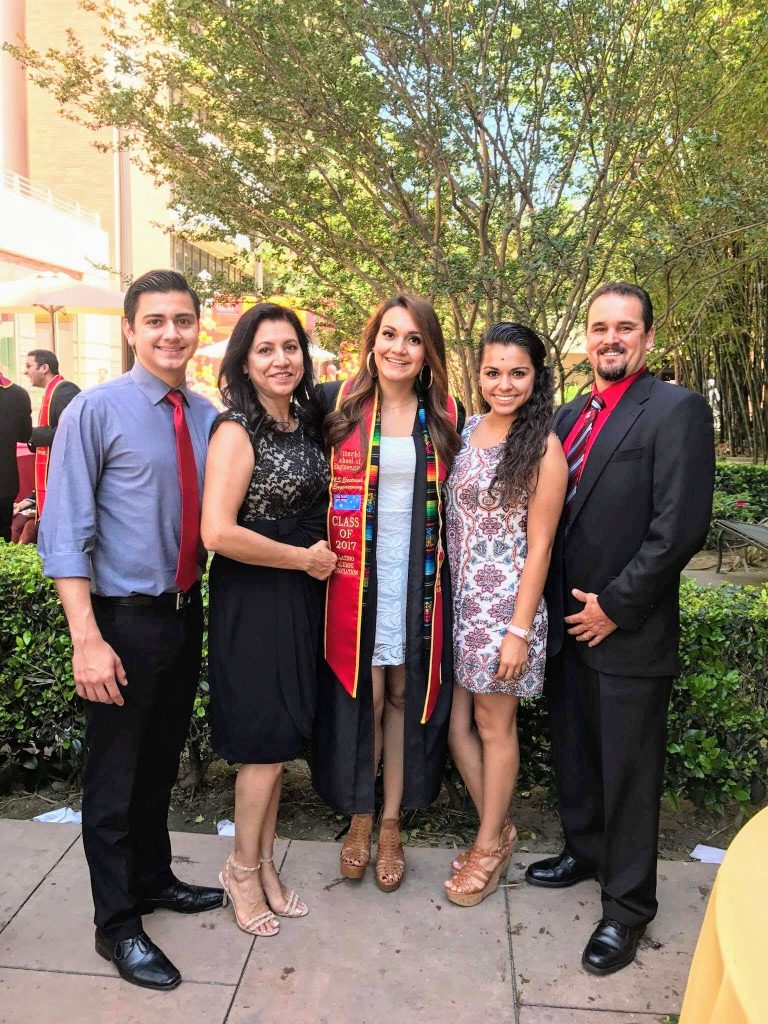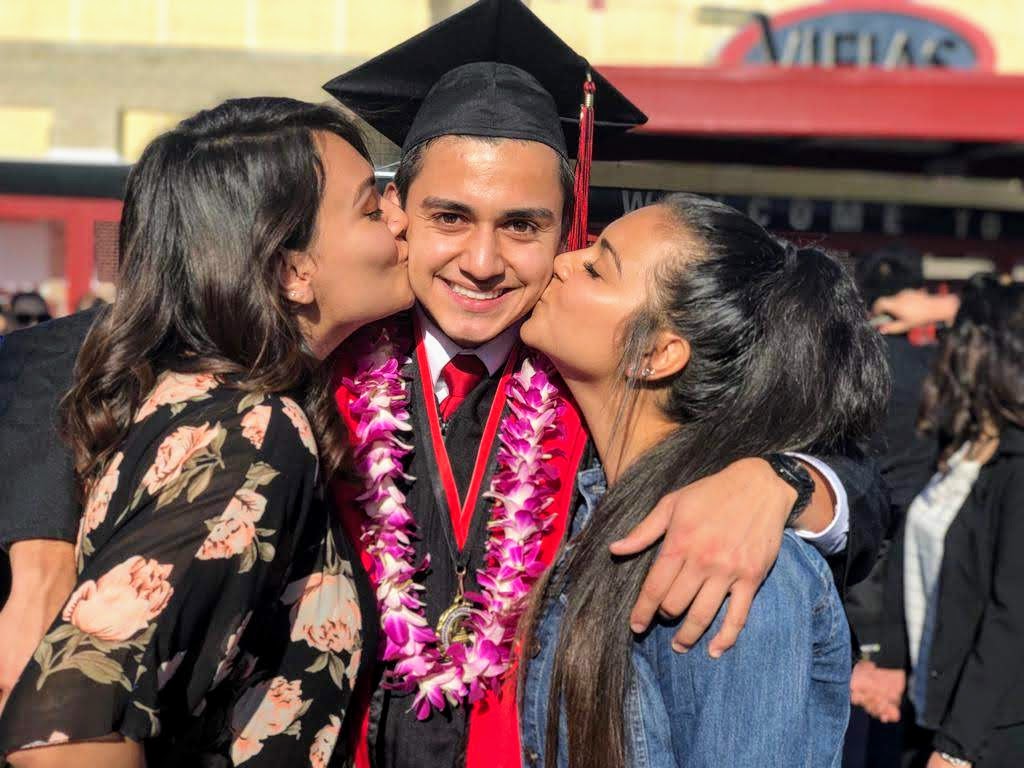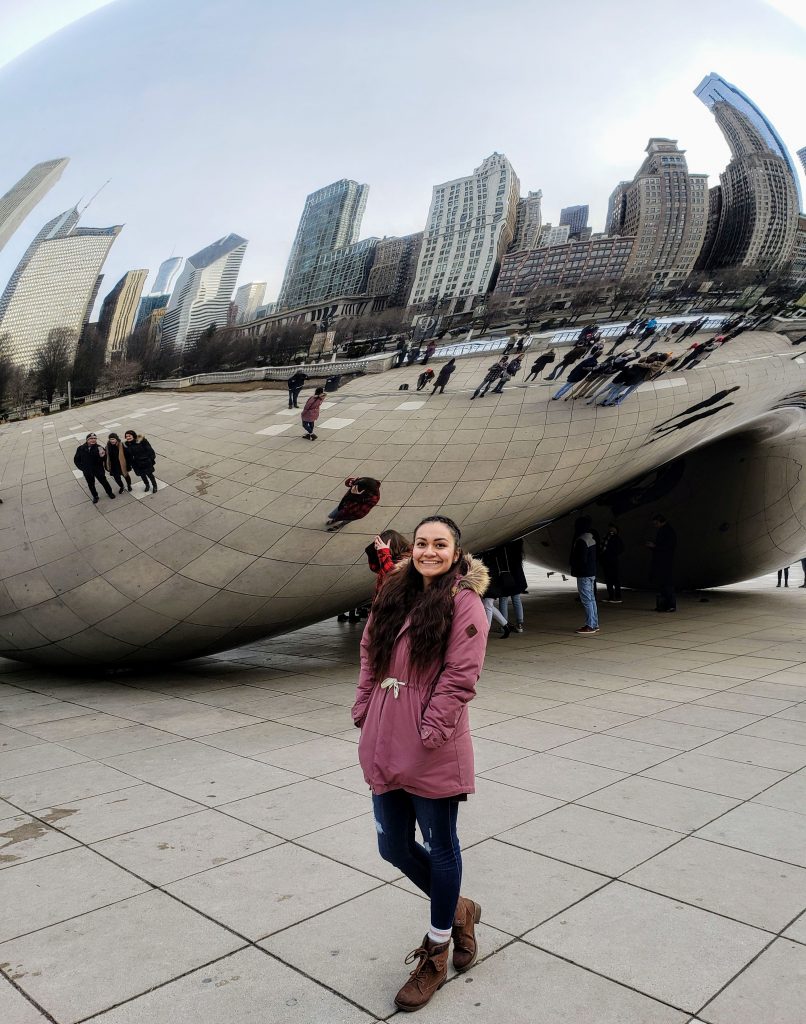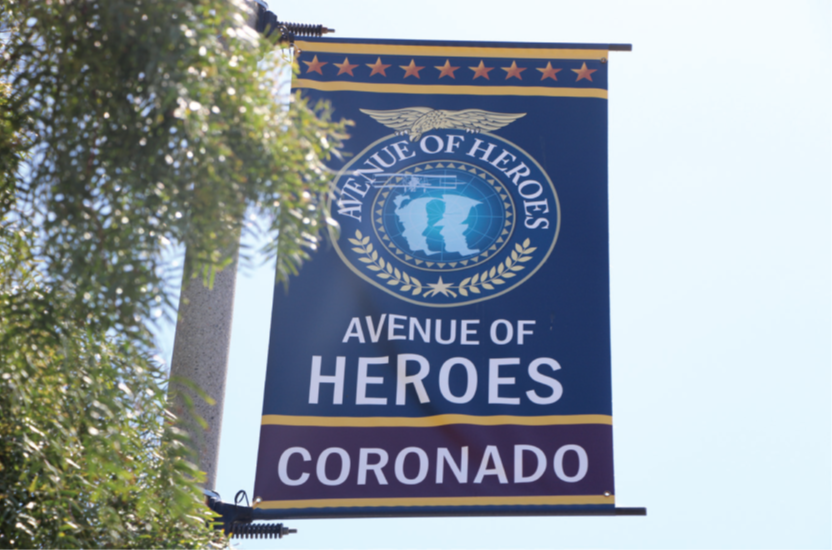From Low-Income Housing to College at USC and a Master’s in Electrical Engineering: 2013 Coronado High School Grad Pursues the American Dream
In some ways, Jasmine Espindola embodies the American Dream. A first generation-born American – Mom is from Mexico, and Dad is from Brazil – Jasmine is the first of her family to attend college in the United States. After attending University of Southern California, Jasmine earned her Master’s in Electrical and Computer Engineering from University of Chicago, and scored a job at a tech company in Silicon Valley.

But things weren’t always easy.
Jasmine’s family wasn’t as financially well-off as many other islanders, and they lived together in low-income housing. Jasmine felt the rub.
“I didn’t come from money,” says Jasmine. “Because of this, I didn’t really feel as if many people understood where I came from, and why school was so important to me.”
Jasmine’s parents worked as taxi cab drivers with Coronado Cab Company. It was a job that gave them the freedom to spend lots of time with Jasmine and her siblings, but it was also a source of embarrassment.
“At school, I know a few people that would make fun of me, or joke around when my parents dropped me off in their taxis,” said Jasmine. “It wasn’t a fancy job like most people’s parents at Coronado High School. They couldn’t afford to give me all the fancy clothes, technology or vacations.”
Still, Jasmine admits that her parents were always present for her, and her siblings.
“I am now very proud of how hard-working my parents are, and had to be in order to raise us and still be able to make time for us,” said Jasmine. “My sister played water polo, my brother played football, and I played basketball, and my parents always tried hard to be at all of our games. Looking back, I realize how blessed I was to have parents that worked a job that gave them the flexibility of moving their schedules around to always be involved in our lives.”

Though she was fortunate to have a loving and supportive family, Jasmine said it was tough growing up a minority in Coronado.
“It was not fun, especially if you are part of the minority where your family isn’t wealthy,” said Jasmine. “I know many times where my family and I have been treated like we didn’t belong.”
She says she also felt the added pressure to dispel negative, pre-conceived notions about minorities in general.
“It is hard being a minority in a place like Coronado, because you have to try so hard to be the ‘model minority’ in order to not get grouped with ‘one of those’ or a ‘thug’ or fit a stereotype,” says Jasmine.
In school, Jasmine remembers being uneasy in history classes when learning about her culture. She remembers that whenever someone read over a paragraph about Mexico or Latinos, everyone would turn to stare at her, as if she spoke for everyone who is Mexican. The worst part? No one seemed to care about much about important parts of history involving minorities.
“It was honestly very uncomfortable realizing most people did not care to learn or pay attention in class when we discussed or glanced over disturbing historical events,” said Jasmine.
When it comes to living on the island, Jasmine says she encountered racism in Coronado “many times.” She worked as a waitress at Night and Day Cafe, where she says most customers were very nice. But some were not. That is, until they learned she was attending college at a prestigious school.
She recalls one situation in particular.
Jasmine was cleaning off a man’s table, and he said, “Wow, you’re a really good waitress, maybe one day if you stick to it, you’ll get to be the cashier.”
When Jasmine told the man she had other plans, he blew her off. But that didn’t stop her.
“When I told him I was going to USC, he was very surprised and shocked…even more so when I told him I was studying electrical engineering,” said Jasmine. “After that, the tone of his voice and the way he treated me changed dramatically.”
Jasmine remembers thinking that she shouldn’t have to attend a good school, or even get a degree to prove her worth as a human being, deserving of respect.
“That moment will forever stick to me, as I realized that sometimes people don’t see your worth unless you have a fancy degree, go to a fancy school or drive a fancy car,” says Jasmine. “I was always taught to treat the janitor and every other person with the same respect, regardless of their job profession. A person’s worth isn’t determined by the amount of money they have in their bank account, or where they were born.”
Jasmine says her parents were also the victims of racism. She recalls a painful experience from her mother.
“She had stopped to go to the bathroom at the Ferry Landing, and she was on the phone,” explains Jasmine. “This older racist lady started going off and yelling at her to ‘speak English’ and that ‘This was America.’ Then she chased my mom out of the bathroom.”
Jasmine said it was the first time she realized that, simply by speaking her first language, she could become a target for angry, racist behaviors.
Despite some of her experiences, Jasmine believes deeply in the words of the Pledge of Allegiance and the Declaration of Independence.
“I was raised with the pledge of allegiance being ingrained in my mind every day I went to school,” says Jasmine. “The words that stick out to me are ‘with liberty and justice for all.’”
She says it’s disheartening that ‘liberty and justice’ have not been granted to everyone–in particular, to black Americans. A perfect example? The recent police killings of innocent black Americans.
“I do not believe that someone’s day job should grant them the authority to kill anyone senselessly, and if they do, I believe they should be judged in the same way the rest of the American people are,” says Jasmine. “I believe that ‘all men are created equal’ like the Declaration of Independence states, and that we all deserve the protection of our unalienable rights.”
Although Jasmine believes that some people are really trying to help end racism, it’s not always easy.
“I think it is very hard for some people to put themselves in the shoes of someone else, when they’ve never lived in that reality,” says Jasmine. “I think most people, regardless of race, will tell you that murder is wrong and racism is wrong. I think the problem is, is that most people want to believe that racism is not real and alive today, and that if it is, it does not exist in their town.”
Jasmine is a big advocate of education reform, in particular, directives to share the histories of different minority groups living in America. She argues that systemic racism is real, but our general education system does a poor job of exposing it.
“Racism is still alive, and there are countless scholars and people with doctorate degrees who have studied this for years,” says Jasmine. “Countless reputable universities have done studies and found the effects of it within education, politics, healthcare, housing, etc.”
To be a better ally, Jasmine says we need to dig a little deeper.
“I would urge everyone regardless of race, but especially people who do not understand this, to do their own research on American history in order to try and understand the way things are the way they are in America,” says Jasmine.
Jasmine suggests looking up historically significant cases such as Buck vs. Bell, Loving vs. Virigina, Lum vs. Rice, as well the Tulsa massacre, Operation Wetback, and practices such as redlining, as well as healthcare disparities and environmental racism.
“Anyone can be a better ally by actively educating themselves on the parts of history that we were not taught in schools, but still actively affects us to this day,” says Jasmine. “It is important to understand the repercussions of the pain that many people feel because if it.”
She argues that living in a bubble, or standing idly by while racist activities continue, is just as bad as perpetuating racism first-hand.
“You may not be racist, but racism still exists, and if you are not actively fighting for a change, you are being complicit in a system that actively hurts or even kills people of color due to systemic racism,” says Jasmine.
Although many non-minorities claim to not “see” skin color, or recognize it as part of the person, Jasmine says that being “colorblind” is not the answer. Although it’s good to look past outer appearances, you have to acknowledge the color of a person’s skin to recognize the hardships they have, and continue to, endure.
“If you are colorblind, you can’t see color, you can’t see patterns and ways in which years and years of slavery, segregation, Jim Crow, redlining and legal discrimination continue to hurt people of color in America,” says Jasmine. “If you can’t see the problems, you will never be part of the solution.”
Jasmine advocates another, more helpful way of thinking.
“The better approach is to be aware of the privilege you have, and to use that to speak up when you see injustices being done and to promote change at whatever institution you are a part of,” says Jasmine. “We all have to be part of educating ourselves and making sure the world is a better place for those who are coming after us.”
When it comes to education, Jasmine takes learning very seriously. She believes that educational funding should not be dependent on property taxes, and that all schools should receive equal funding.
“Access to a quality education and resources goes a long way in ensuring all students have a fair chance at being prepared for higher education, and to succeed in life in general,” says Jasmine. “I believe this is one of many steps that needs to be taken in order for us to attempt to move forward.”
These days, Jasmine is gearing up to start a job in the field of Logic Design in Silicon Valley, and hoping to squeeze in more travel when COVID settles down.
“I was supposed to be backpacking South America, Eastern Europe, and North Africa, but unfortunately due to the travel restrictions and pandemic, I have had to take a step back and take the time to relax at home,” says Jasmine.
For now, Jasmine is enjoying runs down the beach, eating at Yummy Sushi, and spending time with her family and friends. She says she will forever be thankful for the kind people in Coronado who have opened their arms to her family and made them feel welcome. In particular, she wants to thank her teachers.
“A special thank you to all my amazing teachers at CHS who helped prepare me for college, and especially Ms. Davis who is one of the biggest reasons I am an engineer to this day,” says Jasmine. “My mom always said, ‘the only thing no one can ever take away from you is your education.’ Now, I understand.”





